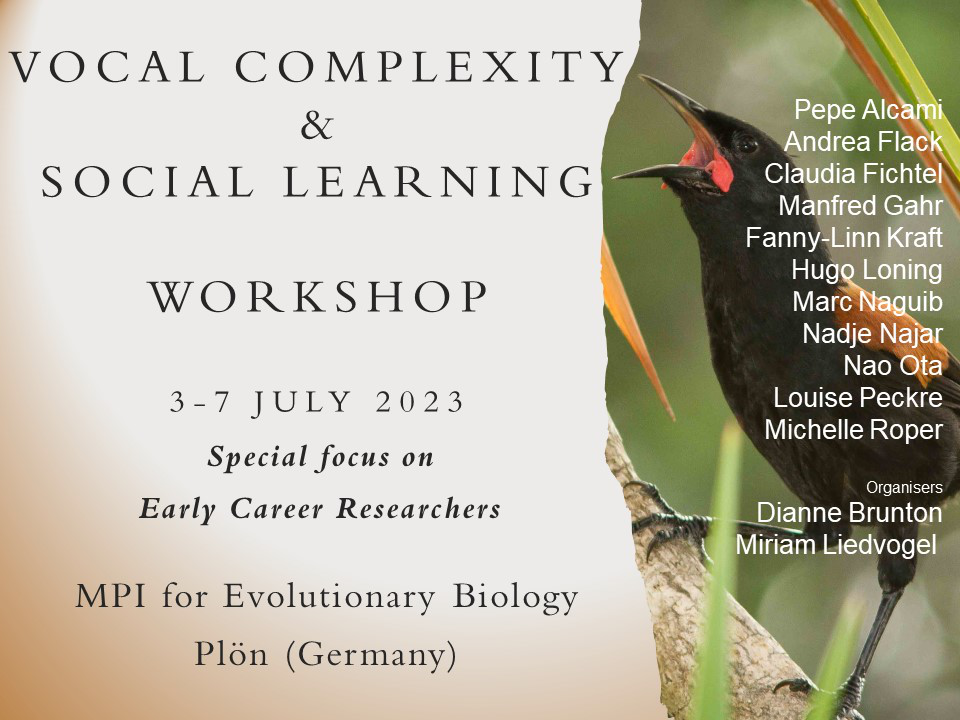Speaker
Description
Vocal contextual learning is the ability to use or understand an existing vocalization in a new context, while vocal production learning is the ability to modify an already existing vocalization or innovate a novel one. Both abilities result from experience with other individuals and thus constitute a form of social learning. Here, we present observations of spontaneous behavior and three controlled experiments demonstrating vocal learning abilities in harbor seals (Phoca vitulina). During a study on pinniped vocal learning, three captive seals showed remarkable behavior: after observing a conspecific receiving a food reward for vocalizing, two formerly silent adult seals initiated vocalizations themselves. In a third seal, active training led to the establishment of two clearly distinguishable calls. Building upon this vocal behavior, we tested two adult seals for their contextual learning abilities, by training them to emit two distinct vocalizations or to refrain from calling. In the first experiment, we tested whether the seals could produce the trained calls in a novel context. In the second experiment, we played back unfamiliar stimuli of the same call type to test if the seals would correctly categorize the vocalizations. In the third experiment, we trained three seals to adjust the acoustic parameters of their call, each associated with a single level of the vocal production system: breathing (seal A), larynx (seal B), and upper vocal tract (seal C). Our results show contextual learning in harbor seals, as the individuals demonstrated the ability to vocally respond to distinct auditory cues and categorize call classes correctly. Vocal production learning was shown with some limitations: all seals altered their vocalizations compared to their pre-experimental repertoire, but only one seal managed to show strong evidence of learning before we had to terminate the experiment. All in all, we suggest that harbor seals are skilled vocal learners – for both contextual and production learning. Further studies should expand our research by increasing the number of tested seals and investigating all levels of sound production within individuals. This will enable inter-individual comparison and reveal in more detail to what extent harbor seals are capable of vocal production learning.

